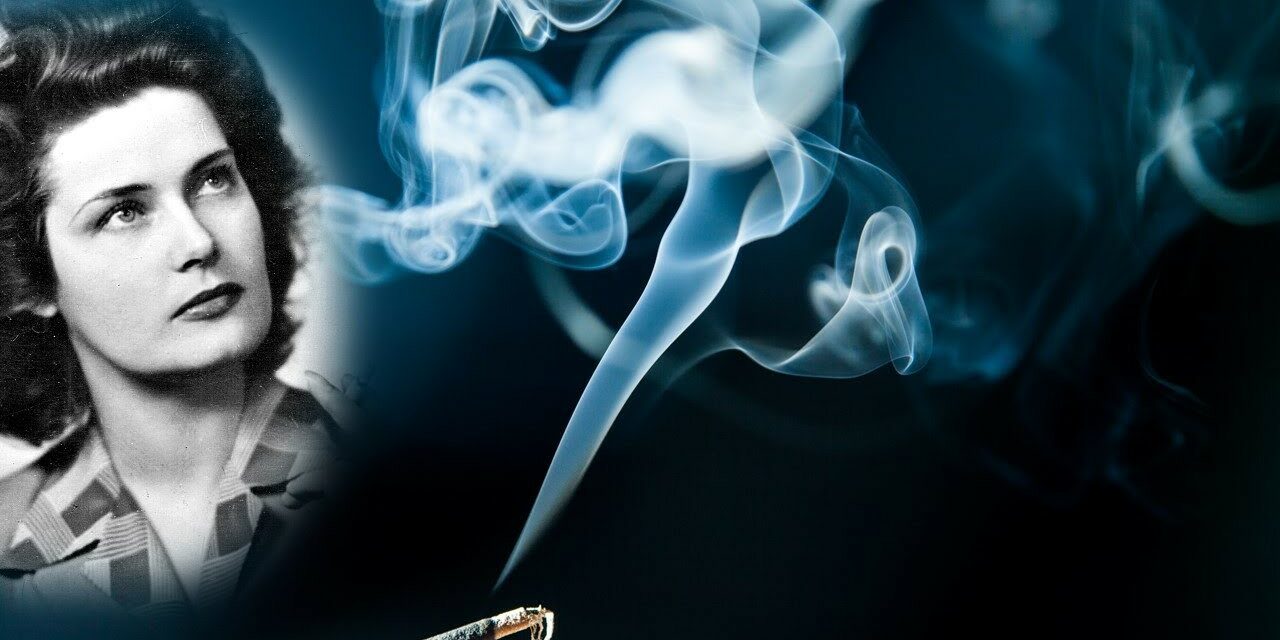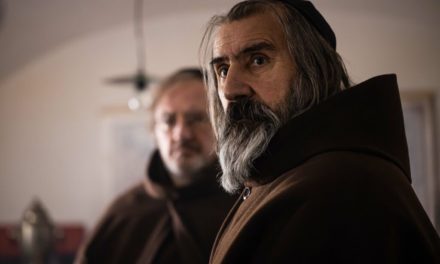An Anglo-Saxon spy chief, brutal Nazi and ÁVH interrogators, Mercedes and Maybach luxury cars, French cognac, Törley champagne, caviar, Deadly spring, Water carries something..., love and betrayal. These are the backdrops of Csilla Toldy's recently published biographical novel entitled: Kata – Karády, the rebellious diva .
The writer, who lives in Ireland, guides the reader with a sure hand in the simultaneously magical and terrifying world of Hungary in the 1940s.
"Well, it will also be difficult to marry this Kati without money..."
When the seventh child of the Kanczler family was born on December 8, 1910, in a one-room apartment on Százados Street, a petite little girl, the chances that the baby would grow up to become the most famous Hungarian film actress of all time, a diva adored by the country, were close to zero. The sudden growth and poor nutrition gave the girl a slightly bent back, and if it weren't for the Red Cross child rescue train that flies the girl to Sankt Gallen, she will spend longer and shorter periods in Switzerland and the Netherlands with foster parents, where she will learn the German language. , there is a good chance it will remain with Katalin Kanczler for the rest of her life.
Fortunately, she did not stay, later the journalist-manager Zoltán Egyed, who embraced her, came up with a surname for Kata that is much more attractive to the general public, and today we know the "femme fatale" with a cooing voice, Katalin Karády. The captivating work of Csilla Toldy, the book Kata – Karády, a lázádó diva, apostrophized by the author as a biographical novel, is about her, which was recently published by Open Books Kiadó, with an excellent translation by Júlia Bíró.
Villa in Lepke Street
The reader can rightly ask why the book of a Hungarian author had to be translated into Hungarian. Well, Csilla Toldy writes in English, because in 1981, at the age of 18, she defected from Hungary, feeling the suffocating atmosphere of the existing socialism, which at that time had already begun to disintegrate, and after quite a long wandering, 26 years ago, on the border of Ireland and Northern Ireland (but still in the territory of the UK ), he settled in the town of Rostrevor, where he still lives today. Although Rostrevor rhymes eerily with Voldemort, the small town on the shores of the magically beautiful sea bay Carlingford Lough bears no resemblance to the evil lord.
Csilla has been writing since 2013, and I know firsthand that she has not forgotten her mother tongue. Our long phone conversations convinced me that he still speaks Hungarian as well as if he lived, say, on the slopes of Rózsadomb towards Pasarét, at Lepke utca 26. Why there? Because there is the former Karády villa and, by the inscrutable will of fate, the residence of the Irish Embassy in Budapest. (Where, by the way, Csilla also photographed herself under the full-length image of the rebellious diva this February.)
Together with the collection of material, Csilla wrote her Karády book for two years, and I have to say, the description of Budapest in the early forties seems so accurate, the author so sensitively reproduces the almost peaceful times (because between 1940 and the end of 1943, you could experience almost nothing in Pest and Buda from the war) so that we can almost smell the gasoline vapor discreetly leaking from the exhausts of Fords and Maybachs.
It rivals Kondor's novels
However, there is a high-quality basis for comparison: Vilmos Kondor's captivating adventure novel, The Budapest Spy, published in 2010. The reader will inevitably discover the parallels when reading the two great volumes, even though I know for a fact that Toldy has not even heard of the incognito author of the Vilmos Kondor thrillers. The age is the same, the early to mid-40s, and at Kondor, his love, István Ujszászy, head of the National Defense Center (ÁVK) with the rank of major, and the head of Miklós Horthy's intelligence and counterintelligence, appears on Karády's side in the same way. Moreover, even the "stuffed moustache" Péter Gábor, the boss of the ÁVH, who, like Ujszászy Ujszászy, also works in the rank of major general. But it would be difficult to write the Karády/Ujssászy story without avoiding the dreaded public defender.
Csilla Toldy's story-telling - I could have written it as a story-telling, because the biographical novel contains plenty of fictional elements - is enviably oiled, even though the events that come together in the last chapter of the 400-page book do not run on a single thread.
One thread is, of course, Katalin Karády's life, with its many pitfalls and dead ends, as well as its noisy successes, loves and disappointments.
The diva who was ahead of her time
Karády was ahead of his time. And not only with her dressing, smoking with a half-meter long ivory pipe, with occasional cognacs, with the fact that she shattered the withered, moth-eaten, musty image of the female ideal created in the Horthy era - but also in the Rákosi era -. Rather, with the fact that - if they had known this concept at the time - Karády was unknowingly an LGBTQ person. One of her great loves was Gizi Bajor, the other was István Ujszászy, the spy chief, but as things turned out, she was happy to flirt with other ladies as well, both aristocrats and people of lower rank. For Karády, love was not strictly tied to either gender, or let's put it this way: it was tied to both. If he were alive today, he would wear a badge that read: "Love is love!"
Karády, whom I met in Toldy's book, is a diva who likes luxury, although she is a lecher, a life-seeker, she is blessed with a very serious sense of justice and social sensitivity. When the system came down with its Jewish laws, he used his political connections to bring home his beloved songwriter Zsüti, alias György G. Dénes, from the labor service in Ukraine, and he also professionally saved and hid Jewish artists and intellectuals, who almost entirely made up his circle of friends.
Live with theater critic Zoltán Egyed, with whom he had a liaison and with whom he stayed until his death, that is, until Egyed's death, even though this was not a good letter of recommendation in either the Horthy or Rákosi era. He is one of the most colorful and lovable characters in the biographical novel, who even wanted to duel with Pál Jávor, Karády's constant partner, because Jávor, in his drunken stupor, said something defamatory to Ilona Titkos, the famous actress, to whom the critic had a close relationship. (Fortunately, the duel did not take place, the two men reconciled.)
The stars of the early 1940s appear on the pages of the novel, as if in a panopticon: Klári Tolnay, Mária Mezey, who is almost a year older than Karády, Hanna Honthy, Gyula Csortos, Ákos Ráthonyi, the brilliant director, Klári Tolnay's husband, Fényes Szabolcs and many others. And above all, Pál Jávor, by whose side Karády became not only a national, but also a famous European star in the Spring of Death in 1939.
And there is Ferenc Kiss as a satanic intriguer, the arrow-friendly but at the same time impressively talented actor, the president of the Chamber of Drama and Film, and the director of the National Theater after October 15, 1944. Whoever breaks the necks of Karády and Egyed and so many other colleagues with liberal or even communist sentiments. So that a year or two later, during the Soviet occupation, Major Tamás took over his role...
Wallenberg also takes the stage
But not only the unavoidable figures of the social and worldly life of contemporary Budapest come to life in the pages of the novel. We meet Raoul Wallenberg, the handsome, elegant Swedish diplomat, who was included in Jerusalem among the righteous in the same way as Katalin Karády, who professionally saved the Jews at the cost of losing their entire jewelry collection.
The book evokes many anecdotes and bon mots, the most striking of which comes from Gizi Bajor, who with this joke hits the edge of the warning that would draw attention to the fact that the artist's Jewish husband, dr. Medical professor Gyula Germán, the renowned nose and ear specialist, will soon be deported by the Germans:
This is impossible! I am Bavarian, my husband is Germán, the director of our theater is Németh (Antal)!
The irony of fate is that the German-Bavarian couple committed suicide together in 1951, at the time of the darkest personality cult.
As for Karády, he reached a good age, he died in New York in 1990, after becoming an undesirable person in Rákosi's Hungary. His love, the fate of Ujszászy is unknown, we could only find out what happened to him somewhere in Russia after the Moscow archives are made searchable.
Featured image: YouTube













